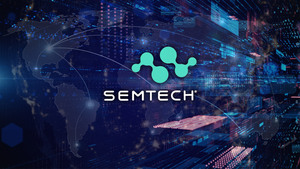
Stockholm, Sweden – October 7, 2025 – Contrary to some circulating information, recent in-depth research indicates that Maha Capital AB (Nasdaq Stockholm: MAHA A) has not been placed on a Nasdaq observation list. Instead, the company is embarking on a transformative strategic pivot, shifting from an energy-focused entity to a diversified investment platform with a significant emphasis on fintech. This ambitious new direction is highlighted by a major business combination with US-based Keo World Inc., a substantial USD 35 million equity raise, and the strategic intent to pursue a dual listing on Nasdaq in the United States.
This pivotal moment for Maha Capital signals a clear departure from its historical operations, aiming to unlock new growth avenues and expand its global footprint within the burgeoning digital finance sector. The move underscores a broader trend of companies seeking diversification and enhanced capital access in dynamic markets, rather than facing compliance issues.
Understanding Nasdaq's Oversight and Maha Capital's Strategic Rebirth
Nasdaq maintains stringent listing standards to ensure market integrity and investor confidence. Companies are typically placed on an observation or non-compliance list if they fail to meet these continuous listing requirements. Common reasons include falling below a minimum bid price (e.g., $1.00 per share for 30 consecutive business days), not maintaining minimum market value of listed securities, or failing to meet specific corporate governance standards such as board independence or audit committee requirements. Such statuses serve as a warning, providing a compliance period for companies to rectify deficiencies before potential delisting. On Nasdaq Stockholm, where Maha Capital is currently listed, an "observation status" signals special circumstances like a takeover offer or significant business changes, rather than non-compliance.
In stark contrast to a company facing compliance issues, Maha Capital is proactively reshaping its entire business model. Formerly known as Maha Energy AB, the company has undergone a formal name change to Maha Capital AB, reflecting its evolution into an equity-driven diversified investment platform. This strategic pivot involves divesting certain oil and gas assets to streamline its focus and integrate high-growth sectors. Central to this transformation is the binding term sheet for a business combination with Keo World Inc., a Miami-headquartered fintech infrastructure platform. This merger will see Maha acquire Keo's subsidiaries, including Keo Latam GTC Program LLC and Keo Puerto Rico LLC, which hold critical Amex issuing licenses and are integral to Keo’s Global Trade Card (GTC) program. The acquisition also includes the Workeo platform, an AI-driven B2B "Buy Now Pay Later" (BNPL) digital payment solution.
To fuel this transformation, Maha Capital has successfully secured a USD 35 million equity raise from strategic institutional investors, priced at SEK 16 per share—a substantial premium of approximately 300% to its previous trading price around August 20, 2025. This capital infusion is structured in tranches, with a significant portion closing with the Keo transaction and the remainder expected by the time of the Nasdaq US dual listing. Furthermore, Maha Capital (Nasdaq Stockholm: MAHA A) has announced its intention to pursue a dual listing on the Nasdaq Stock Market in the United States. This move is strategically aimed at broadening its investor base, enhancing global liquidity, and accessing the deeper capital markets necessary to scale its GTC program and other fintech operations across Latin America and North America. Major shareholders, Starboard and DBO Invest, have committed to lock-up and voting agreements, supporting the Keo transaction and stock stability until the dual listing is complete.
Market Movers: Winners and Losers in Maha Capital's New Era
Maha Capital's strategic pivot and dual listing plans are poised to create significant shifts for itself, its partners, and competitors across the fintech and investment landscapes. The primary winners are expected to be Maha Capital and Keo World Inc., while the broader market will see intensified competition and potential consolidation.
Maha Capital (Nasdaq Stockholm: MAHA A) stands to gain immensely from this transformation. It sheds its legacy energy identity to become an equity-driven fintech platform, gaining immediate access to Keo's proven technology, operational infrastructure, and crucial regulatory licenses, including an Amex issuing license. The USD 35 million equity raise, combined with existing assets, positions the merged entity with over USD 140 million in cash and liquid assets, providing a robust financial foundation. The Nasdaq US dual listing is expected to significantly enhance global liquidity, attract a wider array of institutional investors, and elevate the company's regulatory credibility and global profile. This strategic move aims to accelerate the scaling of its Global Trade Card program across Latin America and Canada, potentially supporting over USD 6 billion in annual transaction volumes in credit card lending.
Keo World Inc. and its subsidiaries, including Keo Latam GTC Program LLC and Keo Puerto Rico LLC, are also clear beneficiaries. Integrating with Maha Capital provides Keo with substantial capital and resources, enabling it to aggressively expand its B2B credit and payment solutions. Keo's founder, Paolo Fidanza, is nominated to be the Chairman of the combined entity, and Keo is projected to own approximately 40% of the shares and votes, potentially becoming the majority shareholder based on performance milestones, ensuring strong influence in the new company. Partnerships with entities like American Express (NYSE: AXP) and BTG Pactual Bank S.A. (BVMF: BPAC3) are further strengthened by Keo's enhanced financial backing and broader market reach.
The ripple effect will be felt by other fintech or investment firms, particularly those operating in the B2B embedded credit and digital payment space in Latin America, Canada, and the US. The combined Maha-Keo entity, tentatively named "KEO Credit," will be a highly capitalized and Amex-licensed player, intensifying competition for existing fintechs and traditional financial institutions offering corporate credit cards, BNPL solutions, and working capital finance. This heightened competition could spur innovation among competitors or, conversely, accelerate consolidation as smaller players struggle to compete with a well-funded, agile entity. Traditional banks may face increased pressure in segments historically underserved by them, as Maha-Keo targets medium to large enterprises and aims to enhance financial inclusion for SMEs.
A Broader Canvas: Industry Trends and Global Implications
Maha Capital's strategic transformation and pursuit of a Nasdaq US dual listing resonate with several profound industry trends, signaling a dynamic shift in capital markets and corporate strategies. This move reflects a broader pattern of diversification, the relentless rise of fintech, and the increasing globalization of capital access.
The shift from an energy company to a diversified investment platform, particularly one focused on fintech, exemplifies a wider trend where financial players seek higher returns and stability in new, high-growth sectors. This is driven by evolving market dynamics and the increasing competition from innovative fintech firms. Maha Capital’s integration of Keo World’s AI-driven B2B "buy now, pay later" (Workeo) and Global Trade Card infrastructure positions it firmly within the booming digital transformation movement, where technology-led innovation is paramount for market relevance and efficiency.
The decision to pursue a Nasdaq US dual listing aligns with a growing desire among international companies to enhance liquidity, broaden their investor base, and tap into the deeper capital markets of the United States. Such listings can significantly boost trade volumes and potentially share prices, providing access to a larger pool of institutional investors. This trend is particularly evident among companies seeking to scale operations globally, especially within the fintech sector, where cross-border expansion is often key to unlocking growth.
Regulatory and policy implications are substantial for cross-border fintech and dual-listed entities. Maha Capital will need to navigate the complex regulatory landscapes of both Sweden and the U.S., adhering to differing financial reporting standards, corporate governance practices, and disclosure requirements. Operating across multiple jurisdictions also brings increased legal risks and compliance costs. The expansion of fintech across borders necessitates robust regulatory frameworks for licensing, anti-money laundering (AML/CFT), data protection, and prudential requirements. The success of Maha-Keo's integrated platform, leveraging existing licenses and cross-border capabilities, will be closely watched by regulators, potentially influencing future policy developments in international fintech. Historically, companies have undergone significant transformations to adapt to market changes, and dual listings have long been a strategy for global market access, with examples ranging from large conglomerates diversifying their portfolios to Canadian resource companies listing on U.S. exchanges.
The Road Ahead: Navigating Growth and Opportunity
The coming months and years will be a critical period for Maha Capital as it executes its ambitious strategic vision. Both short-term integration and long-term expansion will define its trajectory, presenting both significant opportunities and formidable challenges.
In the short term (1-3 years), Maha Capital's immediate focus will be the seamless integration of Keo World's operations, including its Amex-licensed credit card infrastructure and B2B payment platforms across Latin America and Canada. The Nasdaq US dual listing is expected to finalize, leading to enhanced liquidity and attracting a broader, more diverse investor base, particularly institutional investors from the U.S. This period will be crucial for establishing its new identity and demonstrating the initial synergies and profitability of its fintech ventures. While increased visibility is a benefit, managing potential share price volatility, especially after major shareholder lock-up agreements expire, will require careful attention.
Looking further ahead, Maha Capital aims to solidify its position as a diversified investment platform, targeting high-potential sectors beyond its initial fintech focus. The long-term possibilities include sustained global expansion of its fintech offerings, leveraging the robust funding mechanisms provided by its Nasdaq listing. This enhanced capital access will enable further strategic acquisitions and partnerships that align with its diversified mandate. The company's stated goal of achieving unlevered Internal Rates of Return (IRRs) above 20% indicates a disciplined approach to identifying and pursuing high-return opportunities. However, this will necessitate agile capital allocation, robust risk management across a diversified portfolio, and continuous adaptation to evolving market dynamics and regulatory complexities in multiple jurisdictions. Attracting and retaining specialized talent in technology, finance, and international business will also be paramount for scaling its operations effectively.
Potential challenges include intense competition within the fintech sector, economic volatility in target markets (Latin America and Canada), and increased regulatory scrutiny in the U.S., which could lead to higher compliance costs. The significant share issuance associated with the Keo acquisition and equity raise also presents a dilution risk that requires substantial operational growth to justify valuation. Successful execution will hinge on the company's ability to effectively communicate its new strategy and consistent financial performance to a diverse global investor base.
A New Chapter: Investment, Innovation, and Global Reach
Maha Capital's journey is a compelling narrative of corporate transformation, shedding its past to embrace a future driven by innovation and strategic investment. The core takeaway is that the company is not facing compliance issues with Nasdaq; rather, it is proactively repositioning itself as a significant player in the global fintech and diversified investment landscape. This strategic pivot, anchored by the Keo World merger and a planned Nasdaq US dual listing, is a testament to its ambition to unlock new growth avenues and enhance shareholder value.
Moving forward, the market will closely watch Maha Capital's ability to seamlessly integrate Keo World's operations, scale its Global Trade Card and Workeo platforms, and effectively manage its diversified investment portfolio. The success of its Nasdaq US dual listing will be a key indicator of its ability to attract global capital and achieve enhanced liquidity. Investors should monitor operational milestones, revenue growth from its fintech ventures, and its capital allocation strategies. The company's performance in navigating competitive pressures and regulatory complexities in its target markets will also be crucial in assessing its long-term potential and lasting impact. This transformation marks a new chapter, promising a dynamic future for Maha Capital in the ever-evolving financial markets.





